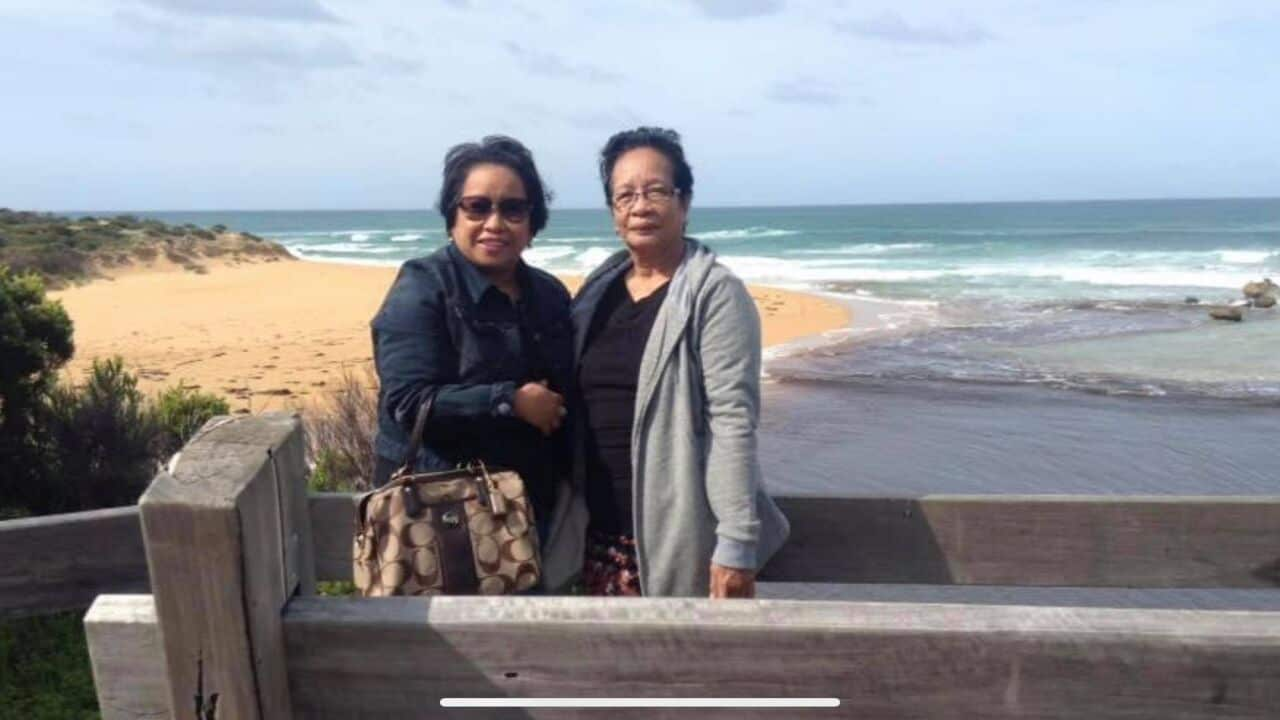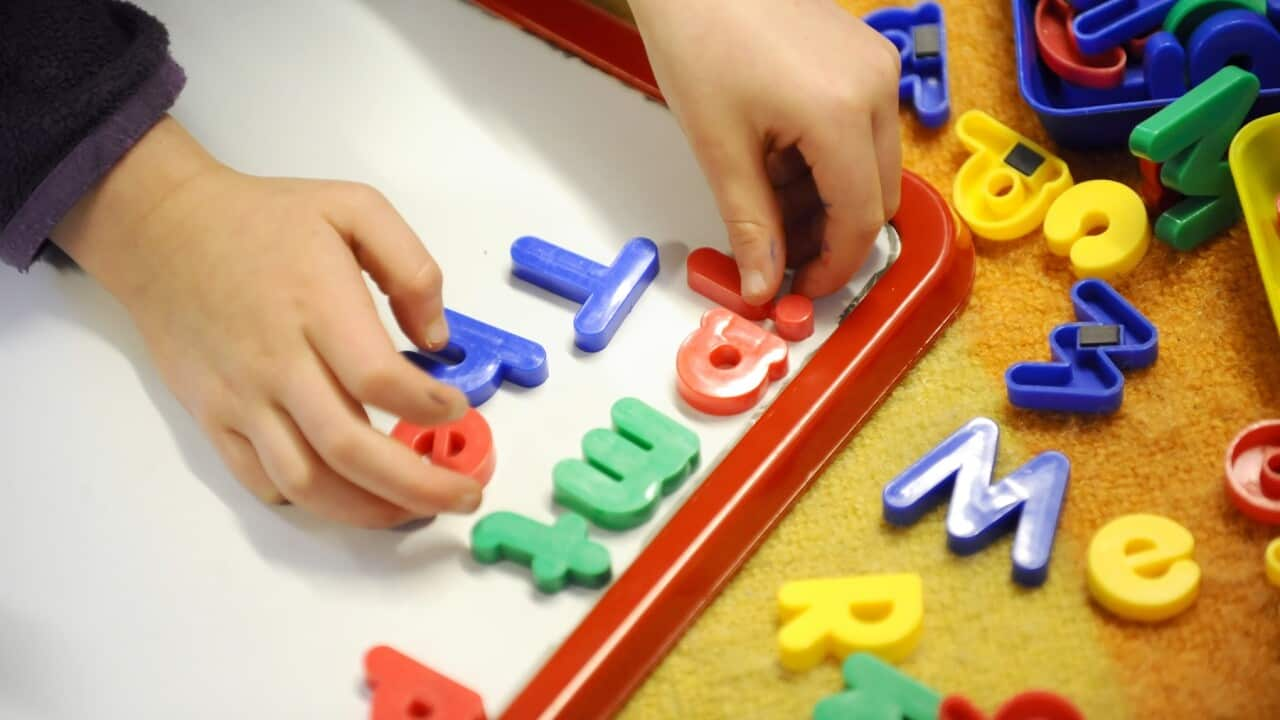Highlights
- In 2019 Marilou's son passed away, in 2021 her mother suffered a stroke.
- She used technology to keep in touch and care for her mother
- Her faith and support from loved ones gave her the strength she needed to cope with her sadness and grief
"'Mum, I’m going to say my goodbye. She asked ‘Why where are you going?’ I said because we are in a pandemic, I don’t know what’s going to happen. She just said hmmm and I said, I don’t know when we’d see each other again. ‘It’s nothing, she said and I said no, I said I want to give you a proper goodbye”
That phone conversation happened in early 2020 at the start of the COVID-19 pandemic. Marilou McCullough wanted to say a proper goodbye to her mother. Working at an aged care facility in Melbourne she didn’t know what to expect, she didn’t know if she’d survive.
It was early days, no one knew what to expect but everyone knew that it was a deadly virus, with the elderly and their carers being one of the most vulnerable.
There were no vaccines yet and the world was filled with uncertainty.
As the days went on, experts were only beginning to understand the danger of COVID-19. She didn’t know what to expect, she only knew that she had to keep on working, helping the elderly who relied on her and her care.
Marilou worked her shifts, regularly spoke to her mother and tried her best to put on a brave face.
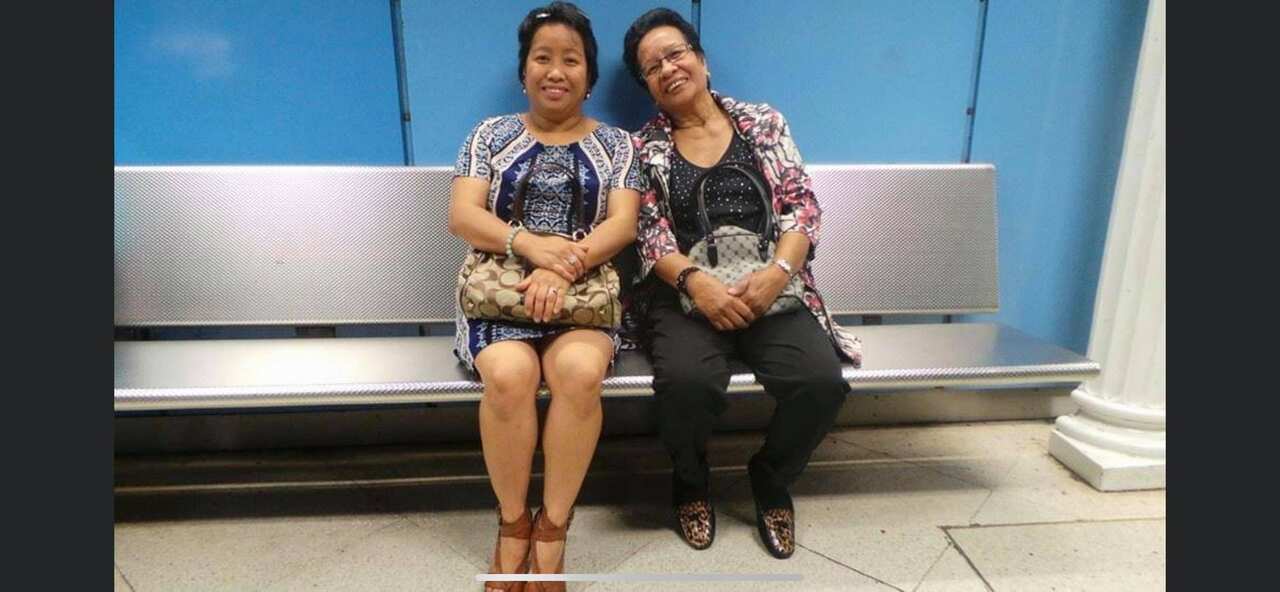
2021 started with another uncertainty
It was early 2021 that her mother’s health began to deteriorate. Marilou believes the sudden death of her son was a factor in her mother’s decline. Her mother suffered a stroke.
While she worked overseas, prior to migrating to Australia her mother helped care for her late son. They were very close.
It was December 2019 when Marilou received the tragic news of her son’s death. He took his own life, leaving behind his wife and a five-year-old child.
He was only 24 years old. Marilou didn’t see it coming. “He was the wisest and bravest, he always knew what to do, people went to him for advice.”
Until today, she still has no answers to why he took his own life.
Coming to terms with grief and uncertainty
Marilou continued with her work, while she continues to suffer the pain brought about by her sons’ death. She tried her best to care for her mother from a distance.
Making most out of the technology, she’d regularly speak to her mother through video calls and relieve the happy days they spent together.
“I’d tell her, mum I sent you some money to buy whatever you need. It was the best I could do under the circumstances.” she adds “All I could do was tell her constantly how I love her deeply”
“During that time, I was undergoing counselling, trying to understand the tragedy that happened with my son. I was also trying to understand the pain I was experiencing, trying to find ways to heal. Still grieving my sons’ death”
It was a difficult time but Marilou found strength and solace in her faith and in prayer. “My son died in 2019, when I returned to Australia, pandemic hit. All I could think of was will we ever see each other again? Then, my mother got sick.”
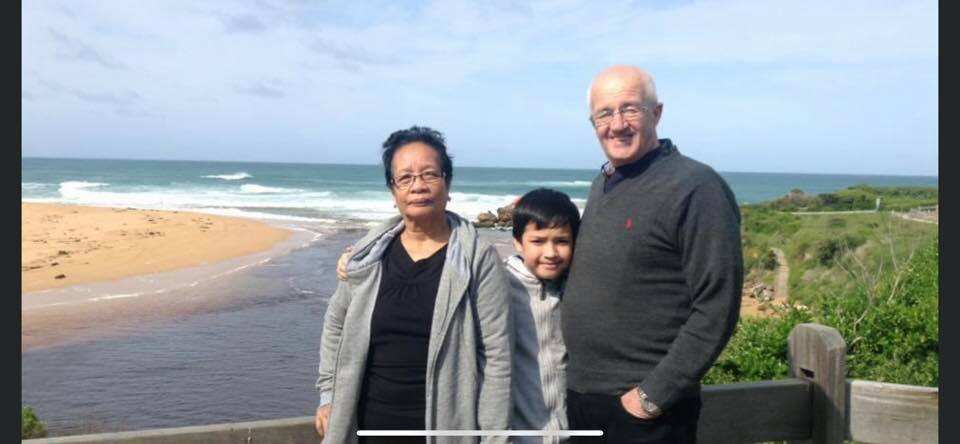
It never occurred to her that it was her who had to say goodbye to her mother.
A little over a year after she said her goodbyes, it was her mother who passed on.
With international borders closed, she could only grieve from a distance, like her sons’ passing, she wasn’t around for her final breath.
Grieving comes in different forms
Family Mediator Therapist, Donovan Nufable says people grieve in different ways. It has no timeline. “We all grieve differently, some grieve during the wake, the funeral. Others take some time. Like me, I didn’t cry at my mother’s funeral. It took me a year before I was able to fully grieve the loss of my mother.”
Marilou was hurting, mourning the loss of two loved ones but she couldn’t let her child and husband know how much she was hurting.
“I didn’t want them to see how heartbroken I was, they would worry. I didn’t want them to worry, I’d keep a brave face and I’d cry in my car, in the parking lot at work.”
Marilou made sure she was always busy at work and at home. “Two days after my mother passed, I went back to work.” Having things to do allowed her to push away the hurt and the grief, while others were around.
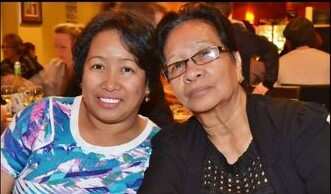
COVID changed the way we grieve
With the closing of Australia’s international borders, many are unable to fly back home during an emergency or death in the family, unlike pre-COVID times. We are forced to find ways to cope.
In the Philippines, many families allow three to four days for friends and family to pay their last respects to their dearly departed. After the funeral, many observe nine days of novena or prayer.
In ordinary circumstances, an embrace and the comforting presence of family and friends helps us deal with the loss of a loved one. COVID took all that away.
Instead, we have online vigils, say our prayers together every evening for nine consecutive nights with the help of technology. COVID took away the warmth and comforting embrace.
Marilou’s friends in Melbourne helped her cope, their comforting words and prayers helped. Again, her faith has given her the strength she needs during the days when her pain and sadness were indescribable.
Finding ways to heal
“In the Philippines, we have what you call the 'babang luksa', we end our mourning after a year,” says Donovan Nufable, Family Mediator Therapist “other cultures have rituals that will allow them to say their goodbyes, focusing on letting go. You really must grieve properly” Nufable adds “For Filipinos, who believe in the afterlife especially now that we aren’t able to go home to say goodbyes, belief in the afterlife gives us hope. One day, we will be reunited.”
At the moment, he says “all we can do is hold on to the memories. They say, make memories, that’s the only thing we can hold on to, hope and memories”
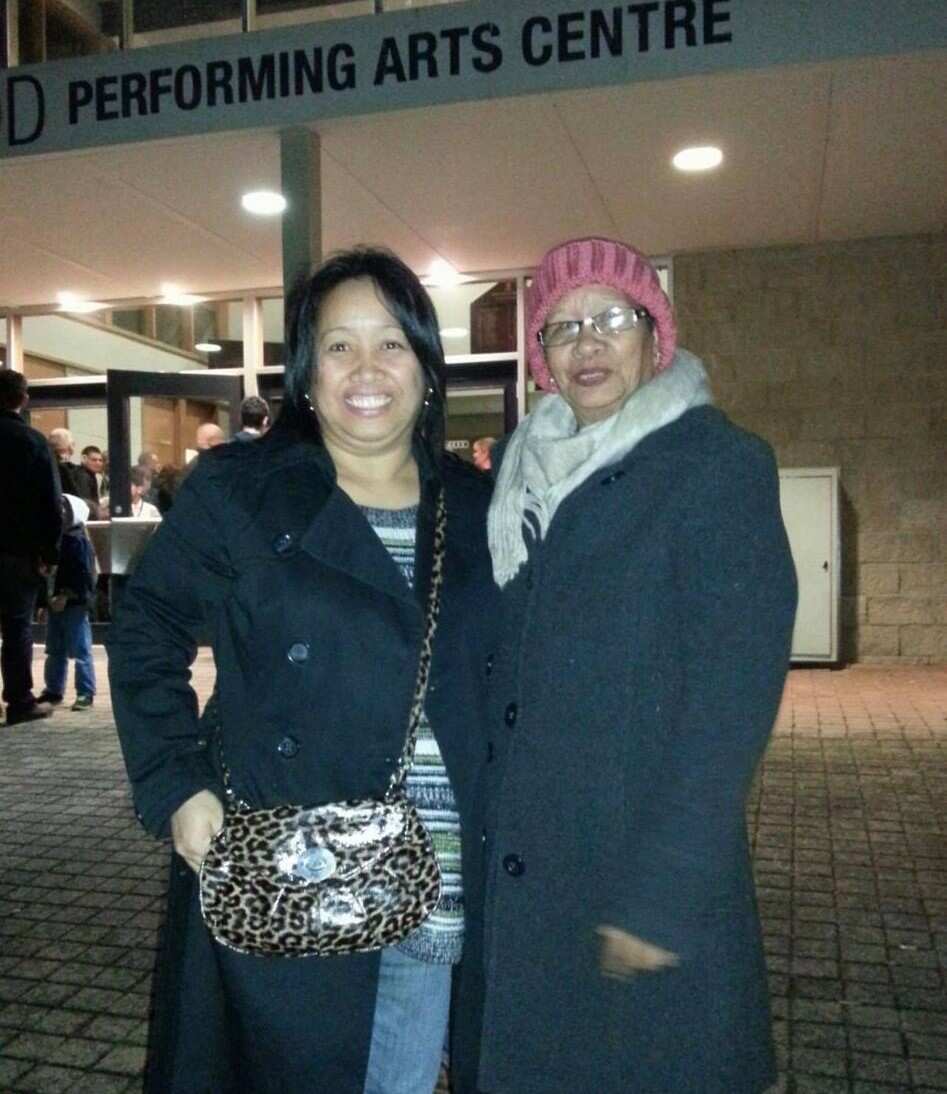
Remembering the time her mother spent in Melbourne helps bring comfort to Marilou. “When I’m alone, I pray, I relive the conversations I had with my mother, I look at our photos, memories from her stay here in Melbourne”
Forgive yourself
While she is coping with her mother’s death and the fact that she was unable to attend her funeral, her son is a different story. “It will probably take a while, I keep on thinking he should have called me, talked to me. Until today, I think of him, he is my child.” Does she think the day will come when she won’t hurt as much? She says “Yes, I am waiting for that day to come, actually I’m trying. I’m still waiting for that day, while I’m helping myself with the help of my family and friends and prayer”
Our pain can disappear when we find healing, healing can only come when we learn to forgive ourselves.
Donovan Nufable says “one of the hardest we have to face is regret. The only thing I can say is, if you have regrets, forgive yourself. If you can’t forgive yourself, it will follow you forever.”
ALSO READ / LISTEN TO
